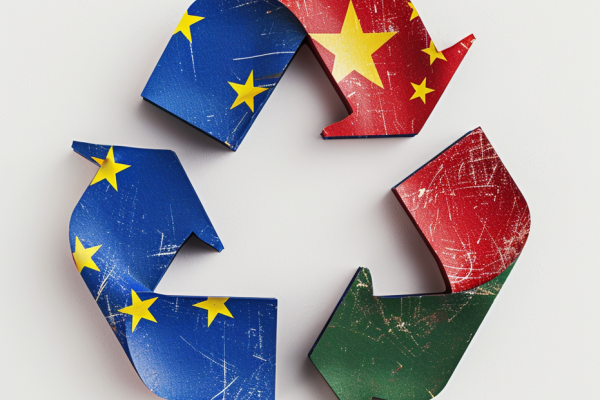Overview
Plastic pollution is an urgent and global problem. Current responses to this problem are fragmented, and can only provide a limited long-term effect on the discharge of plastics into the environment. Now, momentum is increasing to scale up global efforts.
The EU is paving the way for a new global agreement on plastics, to support the global shift to a circular economy as outlined in the circular economy action plan and as mandated by the United Nations Environment Assembly, that in March 2022 launched negotiations for a new international legally binding instrument on plastic pollution. The new instrument should address plastic pollution throughout the entire plastics lifecycle, in order to minimise the mismanagement of plastics and prevent plastic from entering the environment.
Background
There is currently no dedicated international instrument in place designed specifically to prevent plastic pollution throughout the entire plastics lifecycle. Some countries are taking action to reduce plastic consumption or increase recycling - through campaigns and awareness-raising measures for example. Other countries have specific laws in place, such as obliging producers and manufacturers to minimise waste, adopting recycling targets, or phasing out the most problematic plastic products, including single use plastics.
However, recent studies show that with the current measures, we are only able to reduce marine plastic pollution, a central element of the plastic challenge, by 7 per cent. Plastic production is forecasted to continue growing and there is more single-use plastics waste generated than ever before.
Several United Nations Environment Assembly (UNEA) resolutions since 2014 have stressed the need to take urgent, concrete action on plastic pollution. An ad-hoc open-ended expert group on marine litter (the “AHEG”) was set up in 2017 by UNEA3 to identify potential solutions. The group had concluded its work and its recommendations were considered at the second session of UNEA5 in early 2022, leading to the launch of negotiations on a legally binding global agreement to combat plastic pollution.
Objectives
An intergovernmental negotiating committee within which negotiations for the plastics agreement was established at UNEA5. The EU will continue to work with its allies and other partners aiming at a rapid conclusion of the negotiations.
The agreement should aim to close the gaps that existing instruments do not address. It should also help to streamline and coordinate efforts by all stakeholders involved by providing an overarching framework for action. The mandate agreed at UNEA5.2 includes the setup of an intergovernmental negotiating committee that will develop an international legally binding instrument on plastic pollution, including in the marine environment, based on a comprehensive approach that addresses the full lifecycle of plastics. The negotiating committee should, according to its mandate, consider provisions to specify the objectives of the instrument, to promote sustainable production and consumption, implementation and update of national action plans, as well as reporting and effectiveness assessments of the new instrument.
- 2025Negotiations on the legally binding global agreement expected to conclude through a diplomatic conference
- 2023 – 20245 meetings of the Intergovernmental Negotiating Committee to take place
- May 2022Ad hoc open-ended working group (pre-meeting)
To discuss the organization of the intergovernmental negotiating committee, expected during first half of 2022.
- 28 February to 4 March 2022UNEA5.2 took place
Negotiations for a legally binding global agreement on plastics launched. Find out more.
- September 2021Ministerial Conference on Marine Litter and Plastic Pollution
Including Ministerial Statement where countries call for the launch of negotiations for a global agreement on plastics.
- February 2021No substantial negotiations on global agreement on plastics at UNEA5.1
- December 2020Council of the EU adopted circular economy conclusion, including support for global agreement
- November 2020AHEG finalised its work and submitted its report to UNEA5
More than 100 countries express support for a global agreement
- March 2020The Commission adopted the new circular economy action plan, highlighting the global plastic agreement as a global priority
- January 2018The Commission adopted the plastics strategy, highlighting the need to harness global action on plastics
- 2017UNEA3 established the ad hoc open-ended expert group on marine litter and microplastics (AHEG)
- 2014First resolution on marine litter by UNEA, emphasising urgency to take concrete action
Related links
Main law: No legally binding instrument yet but mandate for negotiations agreed at UNEA5.2 and negotiations to be launched in second half of 2022
Related topics: Circular economy International Plastics Sustainable development Waste and recycling
Related strategies: Circular economy action plan Plastics strategy
Related Commission priorities: European Green Deal


